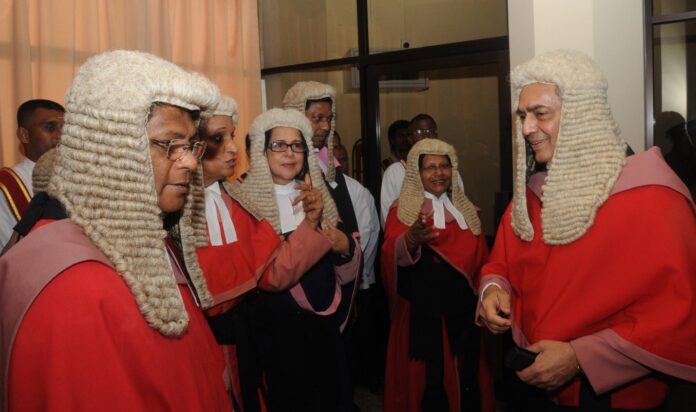In a significant development, District Judge T. Saravanaraja from Sri Lanka’s Mullaitivu region has resigned from his position and left the country, citing threats to his life and extreme stress. This decision has raised serious questions about the independence of the Sri Lankan judiciary, as Saravanaraja recently presided over sensitive cases. While it remains uncertain whether the threats were directly linked to his rulings, this situation underscores the formidable challenges confronting the nation’s judicial system.
M.A. Sumanthiran, a legislator representing Jaffna, expressed deep concern over the unprecedented pressure exerted on the judiciary. He highlighted that judges typically respond to such situations in one of three ways: by maintaining their independence, resigning from their positions, or succumbing to threats and altering their verdicts to align with external pressures.
Saliya Pieris, a senior lawyer and former President of the Bar Association of Sri Lanka, has associated the escalating attacks on the judiciary with the presidency of Ranil Wickremesinghe. Pieris pointed to instances where Supreme Court judges came under threat for issuing orders related to government funding and where judges faced criticism in Parliament concerning specific cases. These occurrences collectively signify a significant threat to the independence of Sri Lanka’s judiciary.
The International Commission of Jurists (ICJ) had previously expressed its concerns regarding the erosion of judicial independence in Sri Lanka, often occurring under the guise of parliamentary privilege. These apprehensions were prompted by an inflammatory remark made by a member of the ruling party, Sarath Weeresekera, who referred to a senior magistrate as a “mentally ill person.”
Saravanaraja’s resignation serves as a poignant reminder of the daunting challenges confronting the Sri Lankan judiciary. It accentuates the urgent need to safeguard and uphold judicial independence within the country.
The situation involving Saravanaraja has also sparked discussions about the broader implications for Sri Lanka’s legal system. It remains to be seen how this development will impact the perception of judicial independence and the administration of justice in the nation. The protection of judges from threats and external pressures is essential for maintaining the integrity and impartiality of the judiciary, which plays a pivotal role in upholding the rule of law in any democracy.

















